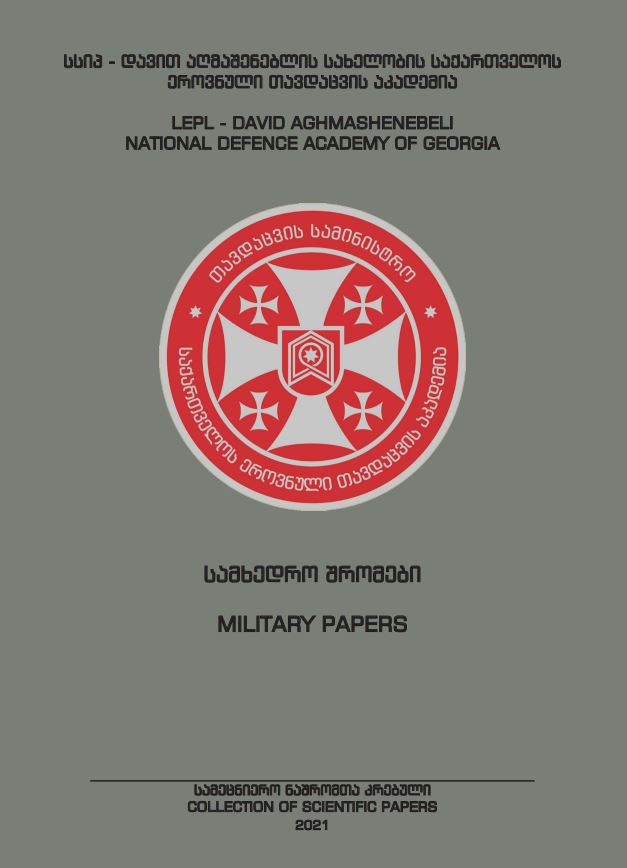Philosophical Principles And Aspects Of Clausewitz’ Doctrine
Main Article Content
Abstract
My task is to analyze certain philosophical principles, aspects of Clausewitz’s famous work - “On War” and to show the fact that they are still relevant in our contemporary reality. The first part of the book is devoted to the analysis of the nature of war. First we hear the fundamental question: what is war? The goal of logically consistent reasoning is to explain the phenomenon of war itself. It begins with a purely logical analysis and definition of his detached notion. In this respect, war is nothing more than a somewhat expanded warfare. His immediate goal is to defeat the opponent, as a result of which he must lose the ability to further resist. Thus, war is an act of violence aimed at: forcing the adversary to do what we will. At the same time, in a military confrontation, one sets the law for the other: namely, both opposing parties must extremely strain their forces, and there is no limit to this process other certain internal factors. Thus, according to Clausewitz, the very nature of war entails an extreme degree of use of violence.
But these reasonings have so far delved into the realm of dissociated concepts, and e.g. We are so far engaged only in a logical analysis of the notion of war. And when we move from abstract reasoning to reality, and therefore, when analyzing the phenomenon of war, we already take into account the real factors, then we are presented with a completely different picture: namely, it actually brings the effect of so-called moderate action. The author further specifies what is manifested in the so-called reality: moderate (balancing) impact, and analyzes each factor in detail. Finally, based on the synthesis of pagan reasoning in the real and abstract-logical dimensions, the following conclusion is made: War appears as a dialectical whole of three essential elements - first, that is, violence, which implies hatred, enmity, aggression and belonging to the natural; the second is the play of probabilities and coincidences, which belongs to the realm of free spiritual activity; and third, that is, the weapon of politics, which belongs to the realm of pure reasoning. A theory that ignores any of these three, or even attempts to present their arbitrary (non-objective) relationship, will inevitably come into conflict with objective reality. Thus, its task is to determine and maintain an objective balance between these three elements.
The more grandiose, the wider the political goal, and the more aggressive impulses, tensions prevail in the peoples of opposing countries, the closer war comes to its abstract-logical nature or idea and takes on the character of a devastating armed conflict; conversely, the smaller the political motive and the less aggressive the tendencies in the face, the more the war deviates from its logical essence and takes on the character of a lower intensity or less mortal-vital confrontation. Hence, the existence of a diverse spectrum of types of warfare, ranging from extremely high-intensity to extremely low-intensity forms of hostilities - leads to the concurrence of two different dimensions of explication. I think that this brilliant analysis by Clausewitz of the philosophical aspects of war is largely of undeniable value, and in particular, the above conclusions will undoubtedly retain their relevance, significance, power in any area and epoch.
